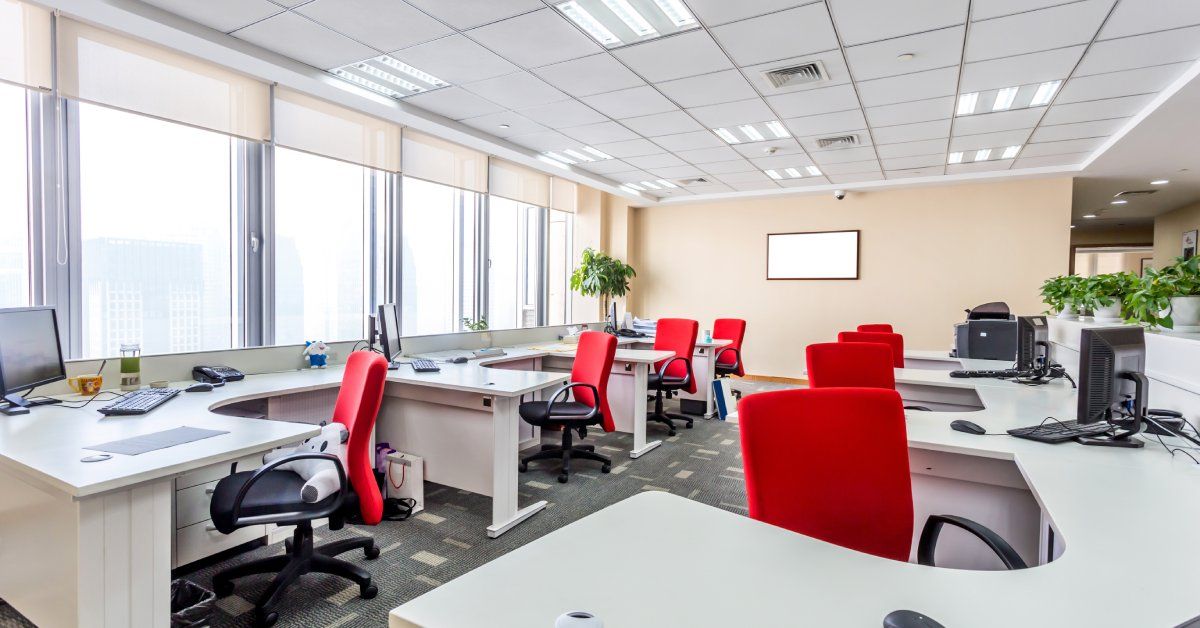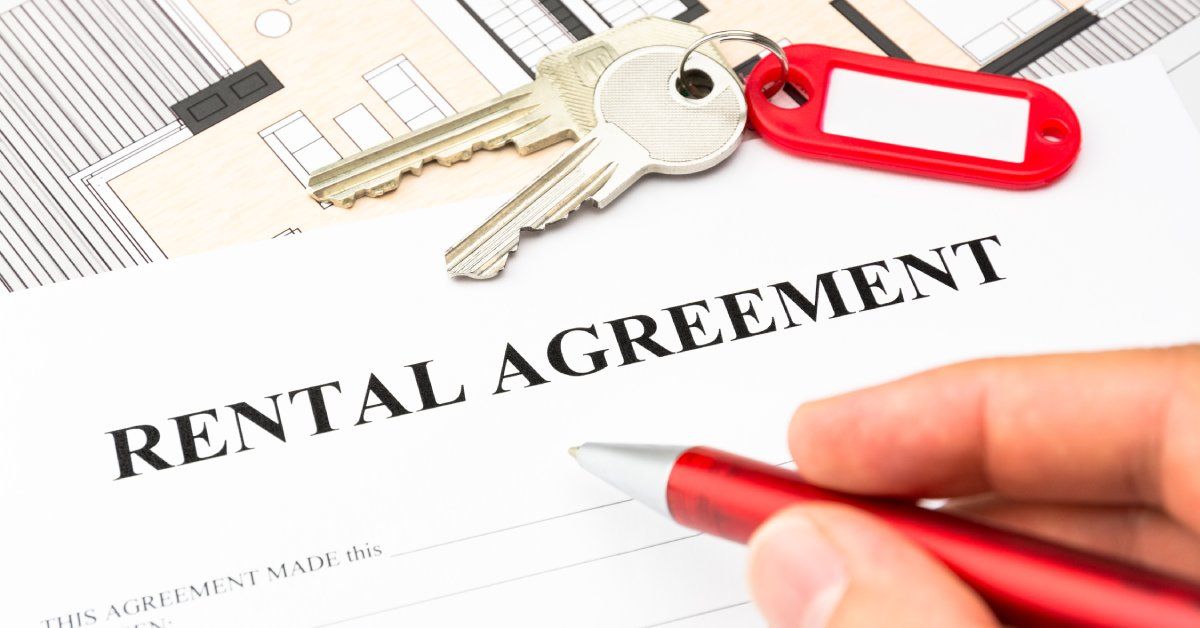12 Things To Know When Renting an Office for Your Business
Choosing the right office for your business is significant in growing your company and establishing a professional image. The right space can inspire productivity, enhance team collaboration, and help you make a strong impression on clients. However, renting an office is no small decision—it requires careful planning and consideration. This guide highlights twelve things to know when renting an office for your business , ensuring you find the right fit for your needs.
Why You Need an Office for Your Business

While remote work and virtual communication have grown in popularity, having a physical office space still holds immense value. An office creates a central hub where your team can collaborate efficiently, build culture, and maintain productive routines. It’s also a place for face-to-face client meetings, which helps establish trust and professionalism.
For many small business owners and entrepreneurs, having a dedicated workspace separates work from home life, reducing distractions and improving focus. An office aligns with your business goals and provides stability and permanence, which is crucial when building your brand’s reputation.
The Benefits of Renting an Office Space
Renting an office space, rather than buying, offers a range of benefits that cater to the dynamic needs of modern businesses. Most notably, it provides unmatched flexibility. Whether your business is scaling rapidly, downsizing, or navigating uncertain times, renting allows you to adjust your space according to your needs without the long-term commitments of ownership. This flexibility can be a game-changer for startups and small businesses, enabling them to grow or adapt without being locked into a fixed asset.
Renting is also a more affordable option upfront, as it helps you avoid the large down payments and ongoing maintenance costs of property ownership. Instead of sinking capital into real estate, you can allocate those funds toward other critical areas like hiring talent, marketing, or investing in technology.
Additionally, rental offices often have built-in amenities and services that make managing your workspace much easier. Features like janitorial services, shared meeting rooms, on-site security, parking spaces, and access to coworking areas can significantly reduce the administrative workload on your team. Many office rentals also handle utilities and maintenance, saving you time and hassle. These conveniences allow your team to focus on what matters—your core business operations—without worrying about day-to-day logistics.
For companies looking to establish a professional presence without the financial and logistical challenges of ownership, renting is a practical and strategic choice that supports growth, agility, and efficiency.
Things To Know When Renting an Office for Your Business
When searching for the perfect office, there’s a lot to consider. From budgeting to lease terms, each step contributes to the overall success of choosing a space that works for you. Below, we’ll explore the critical factors to keep in mind.
Determine Your Budget
One of the first steps is setting a realistic budget. Decide how much you can comfortably spend on rent while considering additional costs like utilities, maintenance, security deposits, and insurance. Remember, the cheapest option isn’t always the most cost-effective—ensure the property’s value matches its price.
Choose the Right Location
Location is a make-or-break factor when renting office space. Opt for a conveniently located office that’s easy for your employees and clients to access. Proximity to public transportation, major roads, and parking facilities can make all the difference. A great location can also enhance your business’s credibility.
Evaluate the Size Requirements
Ensure the office space comfortably accommodates your team, equipment, and any planned growth. Think about the number of workstations you’ll need, storage space for documents, and room for common areas like a breakroom or meeting space. Ensure the size aligns with your current needs and leaves room to grow.
Understand Lease Terms
Carefully reading and understanding lease agreements is crucial. Review the lease length, renewal possibilities, rent increase clauses, and penalties for breaking the lease early. Clarity is key—if you’re unsure about any terms, consulting a professional could save you headaches in the future.
Check Amenities and Facilities
The amenities that come with the office space can add significant value. Consider factors such as high-speed internet, kitchen areas, parking, security, and janitorial services. Knowing what’s included in your rental rate can help you budget more effectively and enhance employee satisfaction.
Consider Nearby Amenities
An office located near useful amenities adds convenience and improves employee morale. Are there good coffee shops, restaurants, and gyms nearby? These options enhance your team’s workday experience and contribute to a positive office culture.
Assess Maintenance and Repairs
Clearly understand who is responsible for maintaining the property and handling repairs. Landlords should outline these responsibilities within the lease so you’re not left scrambling to fix a leaky roof or broken HVAC system.
Explore Flexibility Options
If your business plans aren’t set in stone, consider flexible lease options like coworking spaces or shorter lease terms. Such arrangements allow you to adapt quickly without long-term commitments, making them ideal for businesses experiencing growth or seasonal changes.
Check Zoning Regulations
Before signing a lease, ensure the building complies with local zoning laws and permits your business type. Zoning regulations vary, so verifying that the space is legally viable for your intended activities is essential.
Inspect Before Signing
Never sign a lease without physically inspecting the property first. Walk through the space to confirm it meets your requirements. Look for any visible issues, such as poor lighting, outdated electrical systems, or structural problems. Address potential concerns with the landlord before committing.
Negotiate Terms

Don’t be afraid to negotiate! Landlords may be willing to adjust rent costs and lease lengths or include additional services like maintenance or parking spots. Knowing what you want and being proactive during negotiations can result in better terms that align with your needs.
Take Future Growth Into Account
Finally, consider how this office space fits into your long-term business goals. If you anticipate growth, look for spaces that allow you to accommodate more staff or quickly relocate without excessive penalties. A future-focused mindset ensures your business won’t outgrow the space too quickly.
Make Your Next Office Move a Success
Renting the right office space for your business can significantly impact productivity, culture, and growth. Considering these essential factors when renting an office space , you’ll be better equipped to make an informed decision that aligns with your goals and resources.
If you’re ready to find the perfect office space for your business, an executive suite rental agency can help. At Coastal Compass, our expert team specializes in matching entrepreneurs and small business owners with executive suite rentals that meet their unique needs. Contact us today to get started—your dream office is waiting!
Copyright Coastal Compass. All Rights Reserved.



